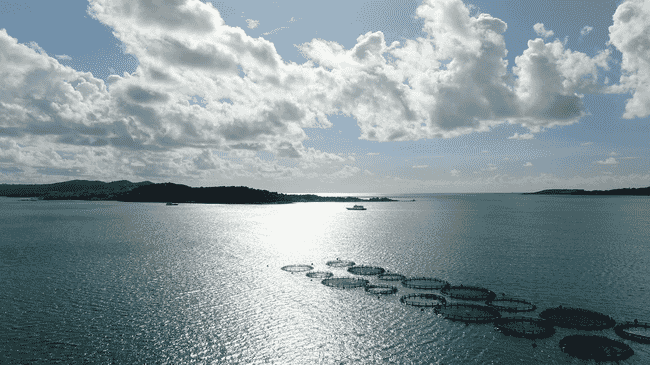
The Action Plan for the development of organic production aims to is to boost the production and consumption of organic products in Europe and aims to “significantly” increase organic aquaculture output in the union.
The Action Plan is in line with the European Green Deal and the Farm to Fork and Biodiversity Strategies and is designed to provide the already fast growing organic sector the right tools to achieve a target of increasing output. It puts forward 23 actions structured around three axes – boosting consumption, increasing production, and further improving the sustainability of the sector – to ensure a balanced growth of the sector.
The new Strategic Guidelines for the sustainable development of EU aquaculture to be adopted by the Commission in spring 2021 will promote organic aquaculture. In addition, the Commission encourages EU Member States to include the increase of organic aquaculture among the objectives of their reviewed Multi-annual National Strategic Plans for aquaculture.
Furthermore, the Commission staff working document on a sea basin perspective to guide the European Maritime and Fisheries Fund (EMFF) programming stipulates that the EMFF (future European Maritime, Fisheries and Aquaculture Fund, EMFAF) should be used to promote sustainable aquaculture practices, such as organic production.
According to the document: “Organic aquaculture can help meet consumer demand for diversified high quality food produced in a way that respects the environment and ensures animal welfare. It can also help fill the gap between EU aquaculture products demand and production for sustainable aquaculture products, and release pressure on wild stocks”.
From 2022 the Commission intends to:
- Support research and innovation on alternative sources of nutrients, breeding and animal welfare in aquaculture; the promotion of investments on adapted polyculture and multi-trophic aquaculture systems; and the promotion of hatcheries and nurseries activities for organic juveniles.
- Identify and address as appropriate any specific obstacles to the growth of EU organic aquaculture. The new guidelines on the sustainable development of EU aquaculture, expected to be adopted by the Commission in spring 2021, will encourage Member States and stakeholders to support the increase in organic production.
Commissioner for Environment, Oceans and Fisheries, Virginijus Sinkevičius, said: “Organic farming provides many benefits to the environment, contributing to healthy soils, reducing pollution of air and water, and improving biodiversity. At the same time, with demand growing faster than production over the last decade, the organic sector brings economic benefits to its players. The new Organic farming Action Plan will be a crucial instrument to set the path to achieve the targets of 25 percent of agricultural area under organic farming and of significant increase of organic aquaculture enshrined in the Biodiversity and the Farm to Fork Strategies. In addition to that, the new Strategic Guidelines for the sustainable development of EU aquaculture to be adopted by the Commission soon, will promote organic aquaculture further.”



